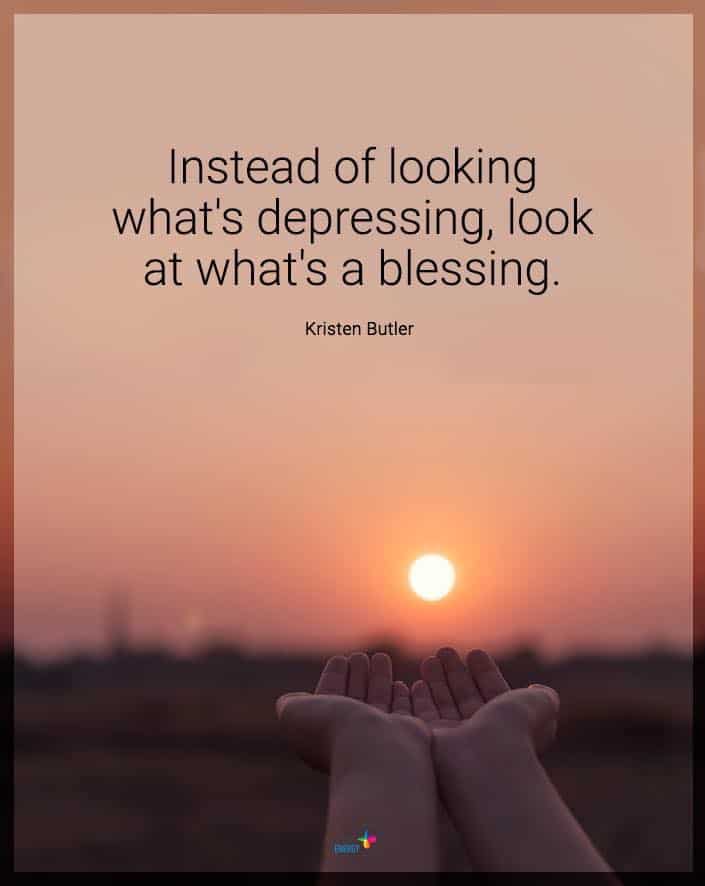Emotional neglect is characterized as being in a relational situation where your needs for affection are disregarded or ignored. This trauma may have happened in your childhood, but it still affects you today. You may be experiencing emotional self-neglect.
Fifteen Signs You Are Guilty of Emotional Self-Neglect
Here are fifteen things that reveal if you struggle with emotional self-neglect.
1 – You feel different from other people
Mental trauma as a child can affect you as an adult. You may feel like something is wrong with you, that you’re different from everybody else. You may not understand why, but this deep sense of being unique haunts you, making you feel as if you’re inferior to everyone else.
 2 – Emotional self-neglect leads to hollowness or numbness inside
2 – Emotional self-neglect leads to hollowness or numbness inside
The feeling of being emotionally numb is also characteristic of someone who has experienced emotional neglect. You may have a general lack of emotions or a sense of being isolated from the world. Researchers suggest that there is a decreased development of ordinary emotional skills in environments where there is emotional neglect. This causes a pattern of blunted emotional reactions. Emotional numbness is hard to describe to people who haven’t experienced it. It’s like being in a vacuum with everything empty around you. A side effect of this hollowness or numbness is depression. Feeling this way can cause you to withdraw from the people around you.
3 – Low self-esteem
Low self-esteem can be a result of emotional self-neglect. Signs of low self-esteem include:
- Focusing more on your negatives than on your achievements
- The emphasis of others being a lot better than you
- Being highly critical of yourself
- Sadness, anxiety, or feelings of being ashamed
If you struggle with low self-esteem, you struggle with relationships at work or school and get very upset if anyone shows you disapproval or gives you criticism. When this happens, you tend to withdraw from people and activities.
4 – Emotional Self-Neglect Leads to a Perfectionist Mindset
Perfectionism tends to set standards that are so high you can’t meet them, or you can only meet them if you work hard. You believe that anything short of your standard of perfection is inferior. You struggle with your imperfections. Making a mistake is a failure in your mind. Or, as a perfectionist, you may believe you never make mistakes. If you admit you made a mistake, it means you’re a disappointment to yourself and others. Perfectionism is exhausting, and over time you begin to feel like you’re not capable of doing anything right.
5 – Easily overwhelmed
When you struggle with emotional self-neglect, you are easily overwhelmed with life. The feelings of being overwhelmed hit you like a giant wave. Stressful things cause you to shut down so that you’re unable to manage your life. Or you may get irritable or angry when you feel overwhelmed and lash out at those around you. Other symptoms of feeling overwhelmed due to emotional neglect include the following:
- Doubt
- Panic
- Helplessness
- Crying
- Excessive worry
6 – Not able to ask for help or support from others
If you’re grown-up with emotional self-neglect, you find it difficult to depend upon others for support or care. You avoid asking for help because you assume people will disappoint you. If you reach out for support, you fear your needs will be ignored. This prospect is terrifying for you because that’s what happened to you when you were young.
7 – Inability to articulate your feelings
Emotional self-neglect leaves you feeling unable to express how you feel. You’ll use short, almost childish one-dimensional words to describe your feelings like
- Sad
- Mad
- Happy
- Okay
This limited emotional vocabulary is characteristic of not understanding what’s going on in your heart. It’s confusing for you to express your emotions to others. When you’re upset, you feel a mix of confusion and frustration because it’s so hard to describe what’s going on inside.
8 – Very sensitive to rejection
Rejection isn’t something anyone enjoys, but some people are susceptible to rejection. If you experienced emotional neglect as a kid, you might be extremely sensitive to rejection. Your sensitivity is rooted in fear of being rejected. You may expect rejection. Because of this, you’re always on the lookout for someone not to like you. You may even push people away to protect yourself from rejection. Plus, it’s a complex cycle for you to see in yourself as an adult, even if others try to point it out to you.
9 – Feel guilty about your emotions and feelings
Because of your emotional neglect as a child, you may struggle with feeling guilty about your feelings. You learned as a kid to push away your emotions. You feel as if emotions are destructive, and you shouldn’t be an emotional person. It’s a twisted way of thinking, but it isn’t easy to see this in yourself unless someone points it out to you.
10 – Self comparison
Self-comparison is a slippery slope. You either feel superior towards others, or you feel inferior to them. You may work hard to be the kind of person you think you should be. So, you act very caring towards others but struggle with self-hate. It’s a double standard of acting one way with other people, and hating yourself.
11 – Unrealistic view of yourself
Due to your emotional self-neglect, you struggle with understanding yourself. You can’t identify your strengths and weaknesses. Self-evaluation is uncomfortable for you. This can be so challenging that you can’t even express your dreams or hopes in life.
12 – Overreact to conflict
If you have a conflict with a friend or co-worker, it can send you into a panic. Growing up with emotional neglect makes you hyper-sensitive to a dispute of any kind. Instead of trusting that the situation will eventually work itself out, you shut down emotionally. Or you may have an outburst that is out of proportion to the conflict. You may feel physically ill due to the conflict.
13 – Blame yourself
You perceive anything negative that happens to you as your fault. You may feel shame or guilt due to the difficult situation because you assume you are to blame. Also, you feel as if bad things will happen to you because you deserve it. Self-blame exaggerates your inadequacies, whether they’re real or imagined.
 14 – Emotional self-neglect leads to self-doubt
14 – Emotional self-neglect leads to self-doubt
Experiencing emotional self-neglect results in a lot of self-doubts. You doubt your ability to have relationships. You connect with abusive people. It’s a weird self-fulfilling prophecy, thinking you cannot maintain a healthy relationship, so you get yourself into an unhealthy relationship. You may remain in an abusive situation because you don’t trust yourself to do anything else. Your self-doubt also encourages feelings of worthlessness and a lack of self-confidence.
15 – Things trigger you easily
Life situations throw you off. Sudden changes or stresses cause you to tear up and feel overwhelmed. You’re not anchored emotionally, so you can’t navigate difficulties like disappointments, responsibilities, or hardships. You cope by feeling numb inside or lashing out in anger.
Five Things to Help You Recover from Emotional Self-Neglect
If you think you were emotionally neglected as a child, here are some suggestions for how you can find healing and learn how to express your emotions without guilt or shame.
1 – Learn how to distinguish your emotions
When you’re tempted to run or ignore your feelings, step back and try to identify how you feel. These categories may help you figure out what you’re feeling. You can be feeling:
- Sadness or joy
- Disgust or trust
- Anger or fear
- Surprise or anticipation
2 – Question your mindset
Learn to ask yourself questions to help you understand what’s going on inside your heart and mind. Some questions you could ask yourself include:
- What just happened that makes me feel like this?
- What does this emotion make me think about myself?
- Why don’t I like myself right now?
- Why do I feel angry, frustrated, or panicked right now?
- What am I afraid of?
- Why can’t I let go of this?
- What do I hate about this feeling right now?
- Is this true about me?
- Am I willing to change how I feel?
- What can I learn about myself right now?
3 – Engage in self-reflection
Learn to understand what you need and take some steps to help yourself.
If you’re experiencing emotional self-neglect, you may not be aware of what you need. You may feel you don’t deserve to get help or what you need. You can begin to learn about different emotions and what they look like.
4 – Deconstruct your old beliefs
Once you realize that emotional self-neglect isn’t healthy, you can begin to imagine what emotional health looks like.
5 – Seek a therapist if you need one
Find a good therapist to help you. Having someone to talk to about your feelings can bring you the healing you need.
 Final Thoughts on Knowing the Signs of Emotional Self-Neglect
Final Thoughts on Knowing the Signs of Emotional Self-Neglect
If you realize that emotional neglect is affecting you, even if it’s challenging, take that first step to get help. You can break free of your emotional self-neglect. Over time, you can find healing and wholeness and be free to have emotions without guilt or shame.


















